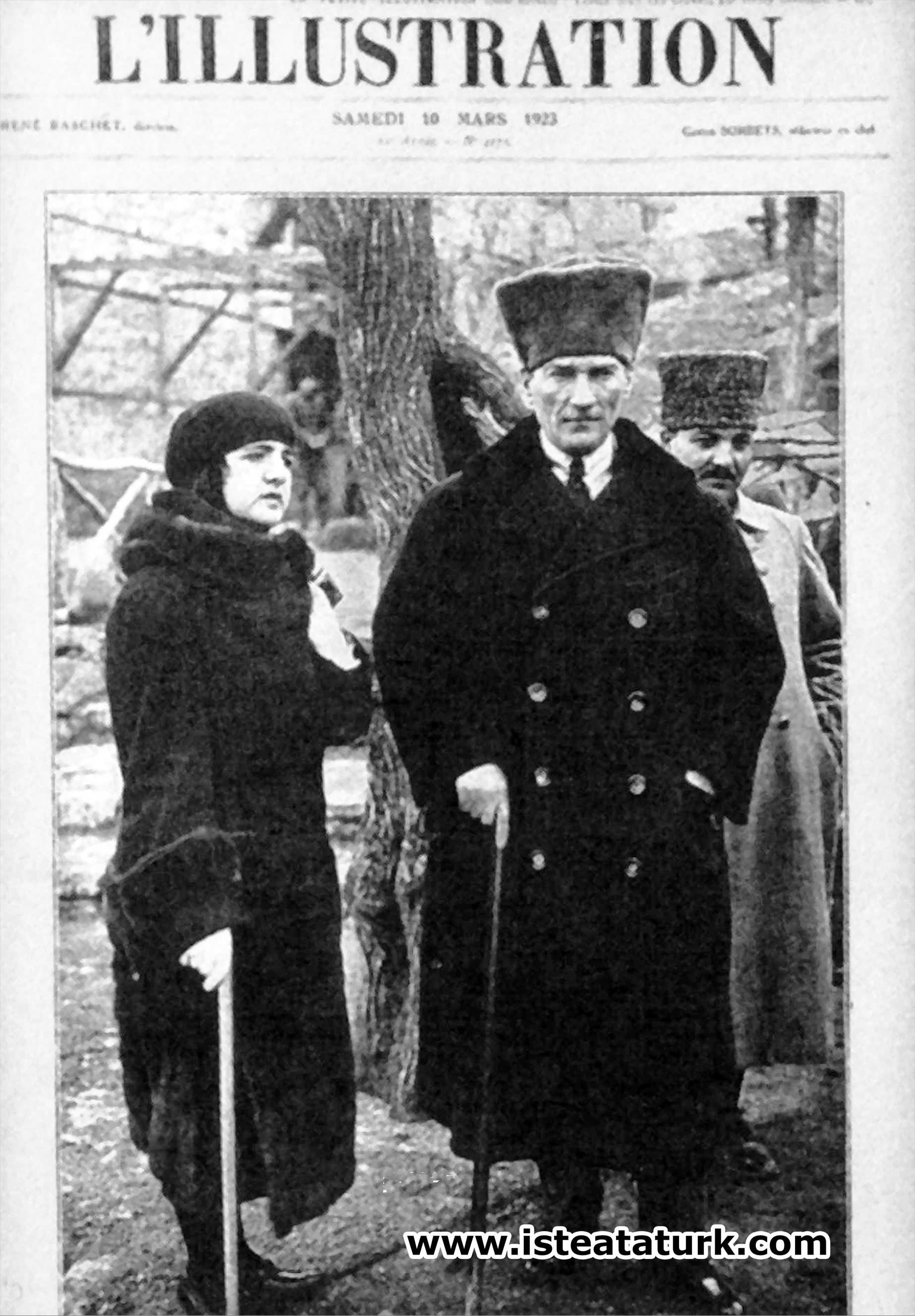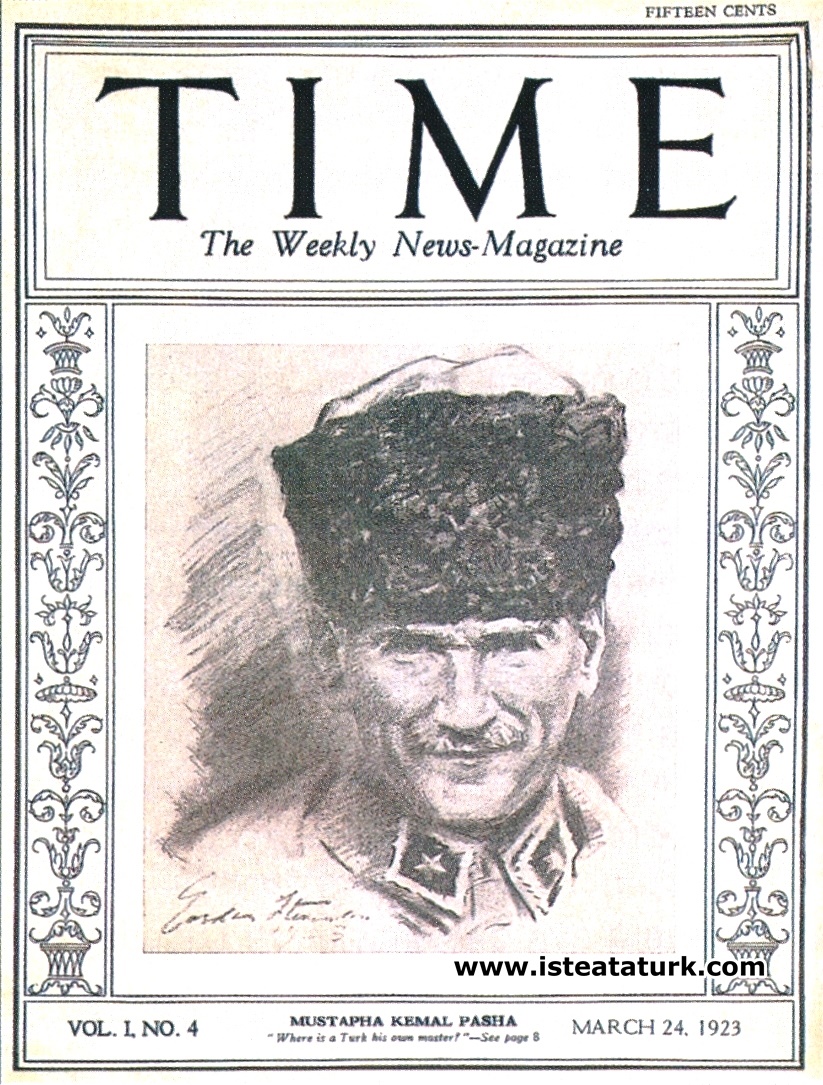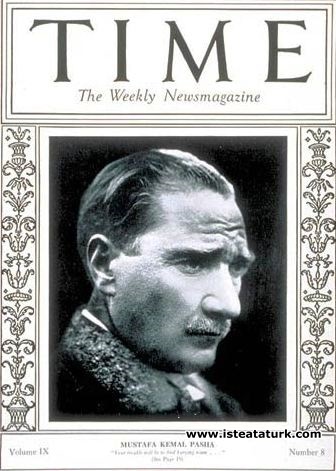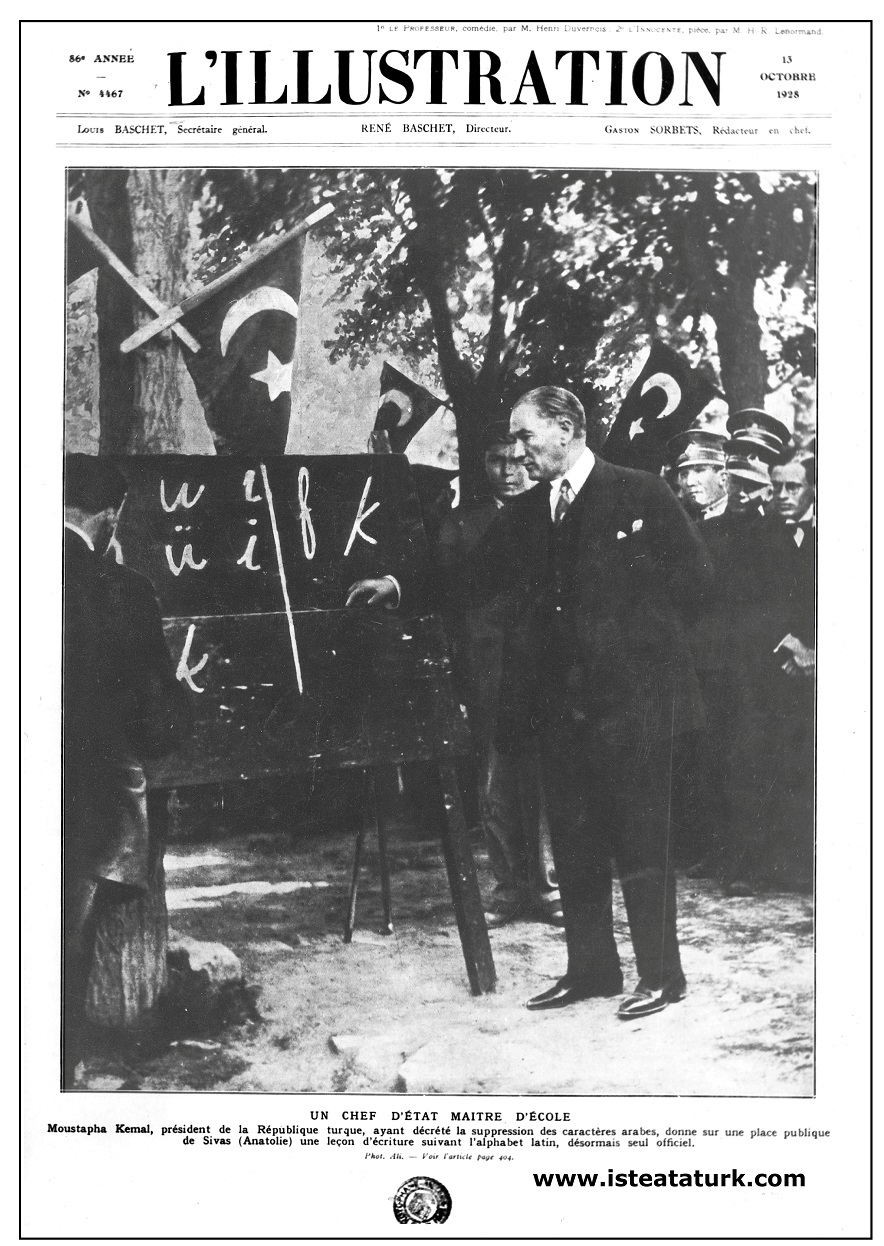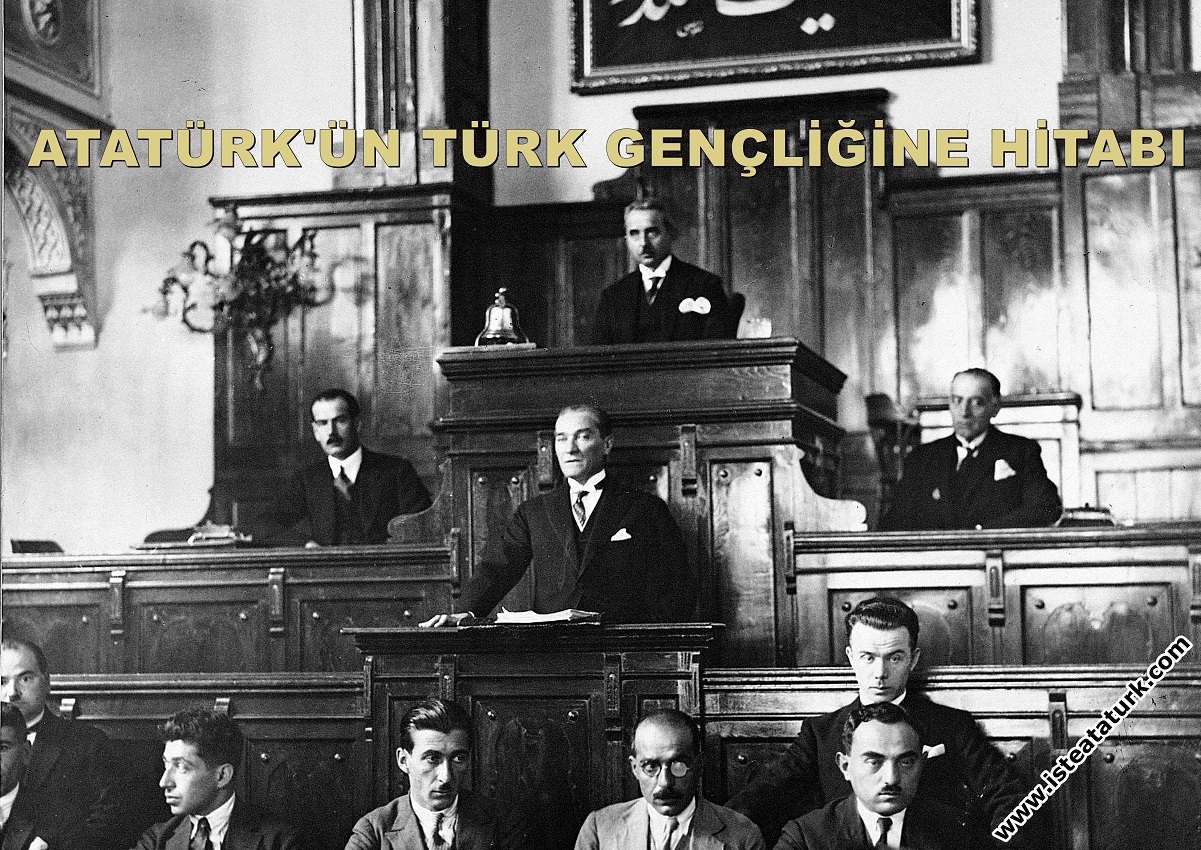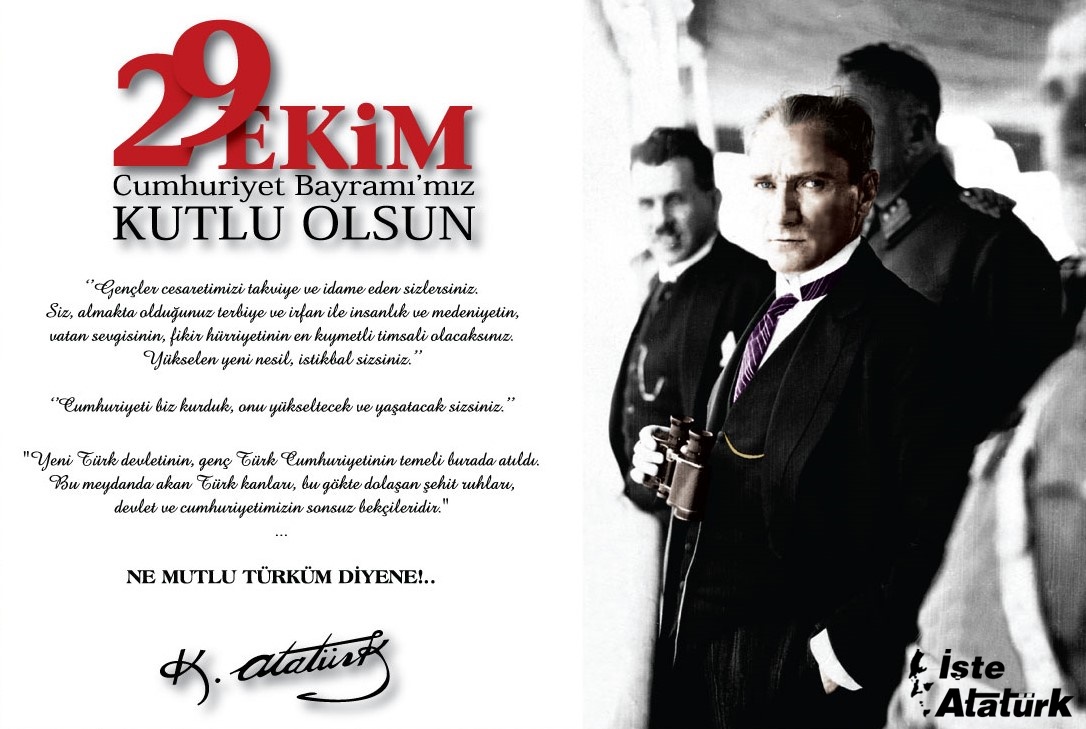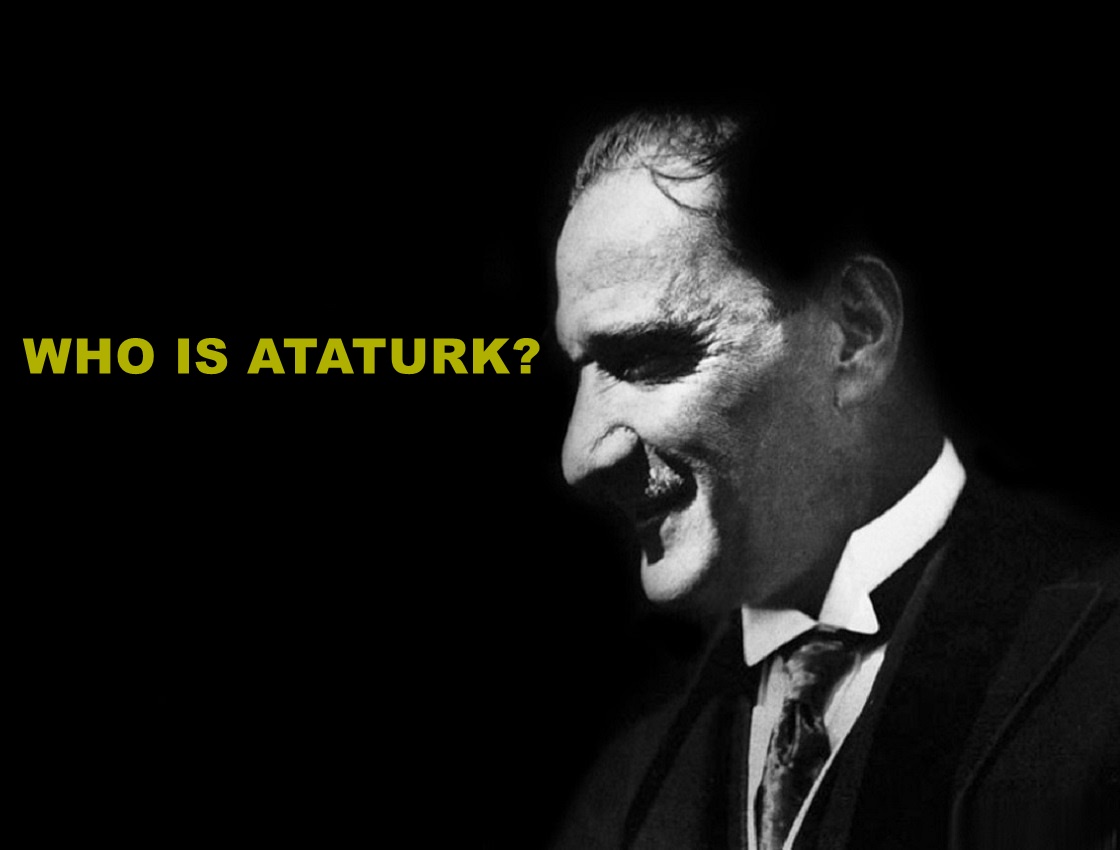
Who is Atatürk?
Character Size
"Leader of Turkey", "Hero of the Islamic World", "Hero of the East", "Universal Face", "The Greatest Man of Our Age", "One of the World's Greatest Statesmen", "One of the World's Greatest State Founders", "The World's Greatest Statement" One of the Greatest Personalities", "Champion of Liberty", "One of the Greatest Reformers the World Has Raised"
WHO IS ATATÜRK?
The answer to this question seems easy at first glance. I think an answer immediately pops up in your mind, about who he is. If you are not one of the lucky people who have had the honor of knowing Atatürk, or if you have not taken the trouble to understand and get to know him, the answer you have in mind will be far from being the answer to this question.
The Great Leader Atatürk is the only leader in the history of the world, about which the most books have been written, spoken and the most researched. The number of books written about Atatürk is expressed in thousands. In fact, it is very common to think that the books that best describe him are written by foreign authors. This is a result of his being a universal personality and how curious he is.
Taking into account Atatürk's efforts to spread harmony and cooperation among people, regardless of color, religion or race, UNESCO declared 1981, the 100th anniversary of his birth, as the year of Atatürk. This result has also been an indication of how he was understood all over the world.
The definition of Atatürk made unanimously by the 152 countries of the UN Educational Scientific and Cultural Organization of UNESCO;
“Who is Atatürk? Atatürk is a superior person who has made efforts for international understanding, cooperation and peace, a revolutionary who made extraordinary revolutions, the first leader to fight against colonialism and expansionism, respectful of human rights, pioneer of world peace, who did not show any color, language, religion or race discrimination among people throughout his life, a unique statesman, the founder of the Turkish Republic.”
At the same time, Atatürk became the leader of the most talked, written and discussed country in the history of the world. To give an example, while our famous poet and writer Atilla İlhan tries to describe him with his book called “Which Atatürk” , he finds the book of Taha Akyol, who says "But Which Atatürk" .
When we look at the events and discussions in general, we see that the parties discussing and speaking about Atatürk are in a pragmatic approach. In other words, everyone is trying to explain and keep Atatürk alive, or they are right in front of him and attack as if taking revenge from history.
Here, I wanted to share Atatürk with you through the eyes of foreign people who had the opportunity to get rid of all prejudices and get to know him personally, which I thought would be objective. I wonder how they see and define our Atatürk, which we cannot see, have difficulty in understanding, and think we know. Let's see who Atatürk is from their eyes .
American Journalist, Miss Gladia Baker tells:
American Miss Gladia Baker (year 1935), one of the few foreign journalists Atatürk interviewed, was describing her;
"In his captivating eyes, Gazi has an extraordinary leadership strength. His thick eyebrows do not remain calm, but rise to high intellectual heights, and an astonishingly broad forehead is furrowed to carve deep lines. His skin is light-colored and sunburned, not dark. His hair is yellowish-brown and He is ashen.it says 1 .
prof. Dr. Clemence Holzemeister* explains;
- “Atatürk was the greatest personality I have ever met;
Let me point out right now. Atatürk was the one with the greatest personality among the people I met in my life. I've been thinking about Adenauer, King Faisal of Iraq or the Pope, I've met all these statesmen, each one of them excellent people. But Atatürk was so impressive... How can I say, he was impressive only with his physique and stance. He spoke little, made little gestures, but whatever he did, the result of his great personality was impressive. One man gets up, alone, in shambles, at war or despite the really harsh conditions of the post-war environment, creating a new, solid Turkey. This is a result of Atatürk's personality traits. He revived Anatolia without some people, parties or support behind him. Decision and action instead of words... Here is Atatürk's character. Anatolia took action thanks to him, showed his strength. All this was achieved by Atatürk's leadership qualities.
I remember Atatürk at official meetings. His nobility and dignity in receiving his guests; so to speak, he was like a prince. As a simple person in a gray dress without any medals, badges of merit or similar garish things... That's what impressed us all. When we came from Austria, we thought we would be greeted with fanfare. No, we had a big personality in front of us. It was this personality that made Turkey Turkey. The heart would have wished that Atatürk's line and what he left could have continued completely and without compromise. This is my personal opinion and wish..." 2
Argentine diplomat Blanco Villalta** explains;
-“I studied Atatürk's life in depth. I think I also know all the published portraits of him. Sakarya hero, the creator of the country, is a slim, smiling but tough man. Atatürk here is the one who made the revolutions and created a new nation. It symbolizes eternity in his gaze. There is the expression of a thinking person who has overcome all the difficulties in the world and won a war...
… When I met him, I could see that although he was adorned with a semi-divine crown of victory, he was really a human being, a human being with pains, sorrows and difficulties like every human being. And I think the greatness of Atatürk is that he created such a great work as a human being alone. He was a Turk like them, who always stood by the Turks on the road to victory, which he knew was Turkey's destiny.” 3
France's Ambassador to Ankara Count de Chambrun tells;
A steadfast forehead framed by blond hair, with the protruding bones of his cheeks, gave a determined expression to his face that indicated irritability. His thin, curved, strong-willed upper lip covered his barely visible lower lip. Only his nostrils trembled. He was muscular and strong, like a soldier lying on hard mattresses, undeterred by the fires of the deserts and the snows of the east, and his shoulders were wide enough to bear all the responsibilities. This guy; He was strong enough to hold the victory with humility. Mustafa Kemal fell silent while his face remained in my memory in this way. He gave the text of the speech to the Minister of Foreign Affairs, who read the French translation." He was muscular and strong, like a soldier lying on hard mattresses undeterred by the snows of the east, and his shoulders were wide enough to bear all the responsibilities. This guy; He was strong enough to hold the victory with humility. Mustafa Kemal fell silent while his face remained in my memory in this way. He gave the text of the speech to the Minister of Foreign Affairs, who read the French translation." He was muscular and strong, like a soldier lying on hard mattresses undeterred by the snows of the east, and his shoulders were wide enough to bear all the responsibilities. This guy; He was strong enough to hold the victory with humility. Mustafa Kemal fell silent while his face remained in my memory in this way. He gave the text of the speech to the Minister of Foreign Affairs, who read the French translation."4
American Journalist Clarence Streit, who interviewed Atatürk, tells;
-"He welcomed me with Turkish hospitality. He spoke French to me comfortably for 2 hours. He is a handsome and good-looking man. He was well dressed and spoke well. He was 40 years old but looked younger. He had the features of a warrior with a broad forehead, mouth and jaw structure, but he wore glasses. and he gave the impression of a professor when you saw him without a hearth. He had an idealistic expression that made his dreams come true. He made an impression of strong character in me. There was no sign of vanity or vanity in his lifestyle and leadership. Other than the guards guarding his office car and his residence, he did not have what other heads of state have. After the interview, I got to know his country, which he believed in a lot." 5This meeting was held on March 3, 1921.
US Ambassador General Sherrill *** explains;
-"The first impression Kemal left on me is worth signing up for. I only noticed his harmonious figure because he gave his back to the light. Later on, I couldn't examine his face in detail as I did at the appropriate time. However, at a glance I realized that he had a very bushy, very wide eyebrows, sparkling with intelligence. A man with sharp and light-colored eyes opened on his face stands in front of us with all his well-built natural presence. During the short interview he gave us, I was able to notice his vigilant vigor and the strength of his shoulders. he would have made the football expert choose to play on the defensive line rather than the offensive line.He astounded me with the enticing expression of his moving eyes, which changed in a unique way as a squirrel."6
German General Liman Von Sanders**** explains;
-"Cute, sympathetic, modest in stance, but extremely insistent on his decisions, unshakable perseverance in his wishes, and open to expressing his views without hesitation." 7
While describing Atatürk, foreigners used seventy-three adjectives for him . Some of these adjectives are; "Leader of Turkey", "Hero of the Islamic World", "Hero of the East", "Universal Face", "The Greatest Man of Our Age", "One of the World's Greatest Statesmen", "One of the World's Greatest State Founders", "The World's Greatest Statement" One of the Greatest Figures", "Champion of Liberty", "One of the Greatest Reformers the World Has Ever Produced" . 8
Who is Ataturk? The answer is always; it will have different meanings for every segment in the past, present and even in the future.
Famous writer Falih Rıfkı Atay expresses this situation in the last lines of his work Çankaya , in which he describes Atatürk ;
"Gazi, whom we think we can tell right away from a joke, a story, an article or a speech, gives a new secret as we seek it. It grows like a mountain that is approached. It is only when we hold it with our hands that we can no longer see it all."
Atatürk is like a giant monumental tree. It is like a tree; its products and fruits are so magnificent that it is impossible not to be envious and envious. The content of the discussions about Atatürk finds its meaning in the phrase "they stone the fruit-bearing tree" .
Atatürk is like a tree that feeds on its roots a century ago and carries the modern thoughts of the future to the clouds in the sky with its branches. Its body is so solid and strong that; It is not possible to destroy, prune or damage it.
It is a gigantic idea that increases in value over time. We know that; Ideas never die.
In my opinion, this is Atatürk…
Dr. Tuna Yılmaz
Source;
1. Memories from Atatürk, Hasan Rıza Soyak, Yapı Kredi Publications, 3rd Edition, 2006, page:12
2. They Recounted Their Lives with Atatürk, Nazmi Kal, Bilgi Publishing House, November 2001, pages:70-76
3. Atatürk' They Talked About Their Lives with Nazmi Kal, Bilgi Publishing House, November 2001, pages: 137-143
4. Memories of Atatürk, Hasan Rıza Soyak, Yapı Kredi Publications, 3rd Edition, 2006, page: 12
5. Princeton University Faculty Member Prof. Dr. Heath Lowry.
6. Memories from Atatürk, Hasan Rıza Soyak, Yapı Kredi Publications, 3rd Edition, 2006, page:13
7. Atatürk, His Life and His Excellence, Prof. Dr. Hamza Eroğlu, Savaş Publishing House, page:243
8. A Schematic Overview of Atatürk's Global Aspect, Bilal Şimşir, Fifth International Atatürk Congress, I, Ankara 2005, p. 135
* Prof. Dr. Clemence Holzemeister : (1886 - 1983 Tyrol Austria) After graduating from the Vienna Architecture Academy, he became a professor at the Vienna Academy of Fine Arts in 1924 and later became the dean of the same university. He was invited to Turkey by Atatürk in 1928. During his stay in Turkey, he built many buildings such as ministry buildings, the Central Bank, the Supreme Court, the General Staff, the Military Academy, and the Presidential Mansion. He trained many famous architects in Turkey. He built the TBMM building by winning an international competition. He had many meetings with Atatürk. Holzemeister has lived in Turkey for 16 years.
** Argentine diplomat Blonco Villalta: In the 1930s, he was in Istanbul in Ankara due to his father's diplomatic mission. Later, he came to Turkey as a diplomat and wrote a book about Atatürk published in Argentina.
*** US Ambassador General Sherrill: General Charles H. Sherrill (1867-1936), a diplomat, lawyer and historian, was the US ambassador to Argentina between 1909-1911. During the First World Wars, he served in New York State as a brigadier general in charge of recruitment and as a general conveying orders to the army. On March 17, 1932, he was appointed to Ankara as the plenipotentiary extraordinary ambassador of the USA. He presented his credentials on 20 May 1932. His term ended on March 23, 1933.
****German General Liman Von Sanders: He was born on 17 February 1855 in Stolp (Slupsk in Poland). He became an officer in the Essen guard in 1874. He was promoted to general in 1911. He came to Istanbul on 14 December 1913 as the head of the committee requested from Germany to innovate in the Ottoman army. First, he became the commander of the Ottoman I Corps in August 1914. He made some reforms in the Ottoman Army until 1914. Sanders, who was promoted to the rank of marshal in accordance with the agreement with Germany, became the commander of the 5th Army in Çanakkale in March 1915. In 1917-1918, this time in the Palestine Front, IV. VII. and VIII. He was brought to the Command of the Lightning Army Group, which consisted of three armies. Sanders has two works on Turkey, "Five Years in Turkey" and "Five Years in Turkey" which he wrote during his time as a war criminal in Malta.
